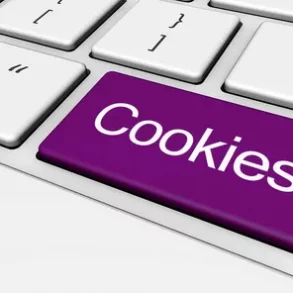Purpose and Scope
This Outsourcing Agreement is entered into by and between General Motors Corporation (the “Client”) and John Doe (the “Contractor”) for the provision of manufacturing, bottling, and supply services.
This Outsourcing Agreement (the “Agreement”) is entered into by and between [Company Name], a [State/Country of Incorporation] corporation with its principal place of business at [Company Address] (“Client”), and [Service Provider Name], a [State/Country of Incorporation] corporation with its principal place of business at [Service Provider Address] (“Consultant”).
WHEREAS, Client desires to engage Consultant to provide certain services (the “Services”) in connection with the support and maintenance of its information technology systems; and WHEREAS, Consultant is willing to provide such Services on the terms and conditions set forth below.
NOW, THEREFORE, in consideration of the mutual covenants and promises contained herein, the parties agree as follows:
Definitions
For purposes of this Agreement, the following definitions shall apply:
“Services” means the outsourced services described in Exhibit A attached hereto.
“Confidential Information” means all confidential and proprietary information of Client, including but not limited to trade secrets, technical data, business strategies, plans, research, and development projects.
“Intellectual Property” means all patents, trademarks, copyrights, trade secrets, and other intellectual property rights owned by or licensed to Client.
Services
Consultant agrees to provide the Services as described in Exhibit A attached hereto. The scope of work shall include:
[List specific services, e.g., software development, data analysis, IT support]
Consultant shall perform the Services in a professional and timely manner.
Consultant shall be responsible for all aspects of the Services, including but not limited to design, implementation, testing, and maintenance.
Confidentiality
Consultant agrees to maintain the confidentiality of Client’s Confidential Information and not disclose such information to any third party without Client’s prior written consent. This obligation of confidentiality shall survive the expiration or termination of this Agreement for a period of two (2) years from the date of disclosure.
Intellectual Property
Consultant acknowledges that all rights, title, and interest in and to Intellectual Property developed by Consultant in connection with the Services belong solely to Client.
Consultant assigns to Client any and all intellectual property rights related to such development.
Fees and Payment Terms
The fees for the Services shall be as follows:
The total fee for the Services is [$X] payable in [installments/monthly payments].
A deposit of [$X] shall be paid prior to commencement of the work.
Consultant shall provide Client with a detailed breakdown of all expenses incurred during the project.
Term and Termination
The term of this Agreement commences on the date first above written (the “Effective Date”) and continues until the completion of the Services, unless earlier terminated by either party in accordance with this section.
Either party may terminate this Agreement upon [number] days’ written notice to the other party.
Upon termination, Client shall pay Consultant for all work completed prior to termination.
Governing Law
This Agreement shall be governed by and construed in accordance with the laws of the [State/Country of Incorporation].
Any disputes arising out of or related to this Agreement shall be resolved through arbitration in accordance with the rules of the [Arbitration Association].
Entire Agreement
This Agreement constitutes the entire understanding between the parties and supersedes all prior negotiations, understandings, and agreements between the parties.
By signing below, the parties acknowledge that they have read, understand, and agree to be bound by the terms and conditions of this Agreement.
CLIENT:
Name: _____________________________________________
Title: ______________________________________________
Date: ______________________________________________
CONSULTANT:
Name: _____________________________________________
Title: ______________________________________________
Date: ______________________________________________ (the “Client”) and John Smith (the “Contractor”) for the provision of manufacturing, bottling, and supply services. Outsourcing Agreement – Manufacture, Bottling & Supply in language English wrap each line of your response in
Scope of Work
The scope of work includes
The scope of work for an Outsourcing Agreement – Manufacture, Bottling & Supply is comprehensive and multifaceted. It outlines the responsibilities and obligations of both parties involved in the agreement, including the company outsourcing its manufacturing, bottling, and supply chain needs.
First and foremost, the scope of work defines the products or services to be manufactured, bottled, or supplied by the outsourced provider. This includes the specific items, quantities, and specifications required for each product or service.
The agreement also outlines the terms and conditions of manufacturing, bottling, and supply chain management. This may include details on quality control processes, packaging requirements, labeling regulations, and any necessary testing or certifications.
Furthermore, the scope of work covers the logistics and distribution of products. This includes arrangements for transportation, warehousing, and delivery to customers or warehouses, as well as any specific requirements for product handling or storage.
In addition, the agreement may specify performance metrics and Key Performance Indicators (KPIs) that will measure the outsourced provider’s success in meeting its obligations under the contract. This can include metrics such as on-time delivery rates, defect rates, or customer satisfaction scores.
Other aspects of the scope of work may address issues related to intellectual property protection, confidentiality and non-disclosure agreements, and dispute resolution procedures in case of any contractual breaches or disagreements.
The Outsourcing Agreement – Manufacture, Bottling & Supply is a critical document that outlines the terms and conditions under which a company will outsource its manufacturing, bottling, and supply chain needs to a third-party provider. By specifying the scope of work clearly, both parties can ensure they understand their respective responsibilities and obligations.
It’s essential for companies to carefully review the scope of work before signing any outsourcing agreements to avoid misunderstandings or misaligned expectations down the road. By doing so, they can minimize risks and maximize the benefits that come from partnering with a reputable third-party provider.
Manufacturing: The Contractor shall manufacture the products according to the Client’s specifications and quality standards.
The manufacturing process for the outsourced agreement encompasses several key steps that ensure compliance with both the client’s specifications and established quality standards. The contractor shall adhere to a rigorous set of guidelines, including strict quality control measures, to guarantee that the final products meet the stipulated requirements.
Initially, the contractor must thoroughly review the client’s specifications, which should include detailed product designs, materials, packaging, labeling, and any other relevant criteria. This comprehensive understanding is essential for ensuring that all aspects of production align with the client’s expectations.
The manufacturing process itself involves multiple stages, each contributing to the final product’s quality. These stages may include cutting-edge technologies such as 3D printing, precision machining, and advanced materials processing, depending on the nature of the products being manufactured.
In addition to adhering strictly to the client’s specifications, the contractor is also responsible for maintaining a high level of quality throughout the manufacturing process. This encompasses both the internal processes within their facility, such as material storage and inventory management, as well as external partnerships with suppliers and third-party service providers.
One critical aspect of quality control is ensuring compliance with regulatory standards. The contractor must be aware of all relevant laws and regulations in the regions where products are manufactured and distributed, including safety guidelines, labeling requirements, and environmental standards.
The outsourcing agreement also emphasizes the importance of efficient supply chain management. This includes maintaining a reliable network of suppliers who adhere to similar quality standards, as well as implementing logistics strategies that minimize waste, reduce costs, and expedite delivery times.
Finally, the contractor shall be responsible for ensuring data security throughout the manufacturing process. This entails protecting sensitive information related to the client’s specifications, materials, production methods, and any proprietary technologies used in the manufacturing process.
Bottling: The Contractor shall bottle the manufactured products in accordance with the Client’s requirements.
The bottling process involves several steps that require careful attention to detail and adherence to quality control measures. In accordance with the Client’s requirements, the Contractor shall ensure that all bottles are properly labeled, sealed, and packaged for distribution.
The following procedures outline the specifics of the bottling process:
Bottle Selection
The Contractor shall source high-quality bottles from reputable suppliers.
Bottles must meet the Client’s specifications regarding size, shape, material, and color.
Labeling
Labels must be designed and printed in accordance with the Client’s branding guidelines.
Labels shall include essential product information such as ingredient lists, instructions for use, and warnings or cautions.
Sealing
Bottles must be sealed securely to prevent leaks and contamination.
The Contractor shall ensure that all caps and seals meet the Client’s standards regarding quality and authenticity verification.
Packing and Distribution
Bottled products shall be packed in cartons or cases that meet the Client’s specifications.
Products must be properly labeled for shipping, including documentation for customs clearance, if applicable.
The Contractor shall also ensure that all bottling activities are compliant with relevant laws and regulations regarding labeling, packaging, and distribution. This may include obtaining necessary permits and licenses as required by local authorities. Additionally, the Contractor shall maintain records of all bottling activities, including batch numbers, production dates, and any quality control issues.
Supply: The Contractor shall supply the bottled products to the Client at the agreedupon rates and schedules.
The scope of supply under this agreement includes the provision of bottled products by the Contractor to the Client on a timely and regular basis.
The bottled products shall be supplied in accordance with the agreed-upon rates, which include the cost of manufacture, bottling, packaging, labeling, and distribution.
The schedules for supply shall be as mutually agreed upon by the parties, taking into account factors such as production capacity, inventory levels, transportation logistics, and market demand.
The Contractor shall ensure that all bottled products supplied to the Client meet or exceed the quality standards specified in this agreement, including but not limited to:
- Product specifications: The Contractor shall supply bottled products that conform to the agreed-upon product specifications, which include details on ingredients, formulation, packaging, and labeling.
- Packaging and labeling: The Contractor shall ensure that all packaged and labeled bottles meet or exceed the regulatory requirements of the relevant authorities, including but not limited to food safety regulations, labeling laws, and consumer protection regulations.
- Quality control: The Contractor shall implement a quality control system to monitor and control the manufacturing and bottling processes, ensuring that only high-quality products are supplied to the Client.
The Client reserves the right to conduct quality checks on any supplies received from the Contractor. The Contractor shall provide all necessary documentation, including but not limited to:
- Certificate of compliance: The Contractor shall issue a certificate of compliance for each batch of bottled products supplied to the Client, confirming that they meet or exceed the agreed-upon product specifications.
- Quality certificates: The Contractor shall provide quality certificates from relevant third-party auditors and certification bodies, such as ISO 9001 or similar standards.
The terms and conditions of this agreement shall apply to all supplies made by the Contractor to the Client during the term of this agreement. By signing below, both parties acknowledge that they have read, understand, and agree to be bound by the terms and conditions of this agreement.
Responsibilities of the Client
The Client is responsible for:
The Client is responsible for ensuring that all information provided to the Supplier (such as product specifications, packaging requirements, labeling instructions, and regulatory compliance details) is accurate, complete, and up-to-date throughout the duration of this Outsourcing Agreement.
The Client must provide the Supplier with a detailed Product Information Document (PID), which includes but is not limited to: product formula, composition, dosage form, packaging, labeling, and any relevant technical specifications.
It is also the responsibility of the Client to ensure that all products manufactured by the Supplier comply with all applicable laws, regulations, and standards of the country where the products will be sold. This includes obtaining any necessary licenses or certifications required for the product’s sale in such markets.
The Client must inform the Supplier of any changes to the product information, specifications, packaging, labeling, or regulatory requirements. Such changes must be approved by both parties before implementation.
The Client is responsible for verifying that all manufactured products meet their quality standards and comply with relevant regulations. They must also ensure that all finished goods are properly stored and transported to maintain their integrity.
Furthermore, the Client must provide a Certificate of Compliance (COC) or a Certificate of Analysis (COA), as applicable, for every product batch to confirm compliance with the agreed specifications.
In addition, if any changes to the product manufacturing process are required, the Client and Supplier must collaborate to ensure that such modifications comply with relevant regulations and do not affect the quality or safety of the products.
Providing the necessary specifications, materials, and instructions for the manufacturing process.
The outsourcing agreement for manufacture, bottling, and supply should include detailed specifications that clearly outline the requirements for the production process. This includes product dimensions, material composition, packaging design, labeling regulations, and any other relevant details. The specifications should be precise to ensure consistency and quality in the final product.
The necessary materials required for manufacturing should also be specified in the agreement. These materials may include raw ingredients, packaging supplies, labels, caps, or any other component that is essential for producing the product. It’s crucial to provide a comprehensive list of the approved suppliers and their contact information.
The manuals outlining the manufacturing process should be detailed enough to allow the contractor to understand and execute the production efficiently. This may include drawings, schematics, or diagrams that illustrate each step involved in producing the product. The instruction should clearly explain any specific procedures or requirements necessary for ensuring quality control.
In addition, the agreement should define quality control standards that must be adhered to during production. These standards may include acceptable deviation limits, testing protocols, and inspection criteria. Regular audits or inspections can also be stipulated as part of the agreement to ensure compliance with the specified quality control measures.
The bottling process should also be clearly outlined in the agreement if it is part of the manufacturing contract. This may include specifications for bottling equipment, caps, labels, or any other materials required for bottling and packaging. Instructions on filling quantities, capping procedures, labeling standards, and packaging integrity should also be provided.
The supply chain management aspect of the agreement should outline procedures for inventory management, shipping protocols, storage requirements, and receiving inspections. The specified deadlines or timelines for delivering products to meet customer demand should also be included in the agreement.
In summary, a comprehensive outsourcing agreement for manufacture, bottling, and supply should encompass detailed specifications, materials lists, production manuals, quality control standards, bottling procedures, and supply chain management protocols. These elements work together to ensure a smooth and efficient manufacturing process that delivers high-quality products to meet customer needs.
Ensuring the quality control and testing procedures are met.
To ensure that the quality control and testing procedures are met for the outsourcing agreement related to manufacture, bottling, and supply, it is essential to have a comprehensive framework in place.
The following steps can be taken:
- Develop a Quality Control Plan : This plan should outline the specific quality control measures that will be implemented throughout the manufacturing process, including regular inspections, testing, and documentation of results.
- Evaluate and Approve Suppliers: A thorough evaluation of potential suppliers should be conducted to ensure they meet the required standards for quality, reliability, and consistency.
- Establish Clear Communication Channels: Regular communication with suppliers is crucial to ensure that any issues or concerns are addressed promptly, and to prevent quality-related problems from arising.
- Conduct Regular Audits: Internal audits should be conducted periodically to evaluate the supplier’s adherence to agreed-upon quality control procedures and to identify areas for improvement.
- Maintain Accurate Documentation : All testing results, inspection reports, and other documentation related to quality control must be maintained in a secure and easily accessible manner.
- Implement Corrective Action Procedures: A plan should be developed for addressing any issues or deviations from the agreed-upon standards, including procedures for correcting defects and preventing recurrence.
The key areas of focus when ensuring quality control and testing procedures are met include:
Raw Material Inspection
Ensuring that all raw materials meet the required specifications before being used in production.
Manufacturing Process Control
Monitoring and controlling the manufacturing process to prevent defects or contamination.
Bottling and Packaging Quality Control
Verifying that all products are properly labeled, packaged, and stored to maintain quality and integrity.
Supply Chain Management
Managing the supply chain to ensure that only approved materials and components are used.
The outsourcing agreement should clearly outline the responsibilities of both parties regarding quality control and testing procedures, including:
- Supplier’s Responsibilities : Clearly outlining what is expected from the supplier in terms of maintaining quality control measures.
- Customer’s Responsibilities: Defining the customer’s role in ensuring that quality control measures are met, including conducting audits and monitoring testing results.
In summary, ensuring the quality control and testing procedures are met for the outsourcing agreement related to manufacture, bottling, and supply requires a comprehensive framework that includes regular inspections, testing, and documentation of results. This includes evaluating and approving suppliers, establishing clear communication channels, maintaining accurate documentation, implementing corrective action procedures, and focusing on key areas such as raw material inspection, manufacturing process control, bottling and packaging quality control, and supply chain management.
Paying the Contractor within the agreedupon payment terms.
The outsourcing agreement for manufacture, bottling, and supply typically outlines the payment terms that both parties must adhere to.
Paying the contractor within the agreed-upon payment terms is essential to maintain a positive and trustworthy working relationship.
The contract should specify the payment methods, including bank transfer, cheque, or online payment platforms, to ensure seamless transactions.
It’s crucial to keep detailed records of all payments made, including dates, amounts, and proof of transfer, to prevent any disputes that may arise in the future.
Prioritize transparency by informing the contractor of any delays or changes in payment schedules to avoid misunderstandings.
The agreed-upon payment terms should also cover late payment fees, interest rates, or penalties for non-payment to encourage timely payments from both parties.
When making a payment, ensure that it aligns with the contractually agreed-upon due date and amount to maintain compliance.
A well-structured payment schedule can help prevent any financial discrepancies and foster trust between the contractor and the client.
Regular communication is key in ensuring timely payments and resolving any payment-related issues that may arise during the outsourcing agreement.
Ultimately, paying the contractor within the agreed-upon payment terms not only demonstrates professionalism but also reinforces a strong and reliable business partnership.
Responsibilities of the Contractor
The Contractor is responsible for:
The Contractor is responsible for the successful execution of an Outsourcing Agreement , specifically related to the manufacturing, bottling, and supply of goods. This agreement outlines the terms and conditions under which the contractor will provide the necessary services to the client.
Under this agreement, the Contractor is primarily responsible for ensuring that the manufactured goods meet the required quality standards and specifications as agreed upon by both parties. The Manufacture process involves the production of the goods, which may include various stages such as sourcing raw materials, processing, and packaging.
The Contractor is also responsible for overseeing the entire Bottling & Supply Chain Management , ensuring that all necessary arrangements are made to distribute the products from the manufacturing site to the clients’ premises. This includes coordinating with transportation providers, managing inventory levels, and arranging for storage facilities when required.
Additionally, the Contractor will be responsible for providing Supply Chain Optimization Services, aimed at improving the overall efficiency of the supply chain process. This may involve analyzing existing operations, identifying bottlenecks, and implementing strategies to streamline logistics, reduce costs, and enhance customer satisfaction.
The Contractor’s responsibilities under this agreement also extend to ensuring compliance with relevant regulations and laws related to Quality Management, health, safety, and environmental protection. The contractor will be required to maintain a high level of transparency in all their dealings and ensure that all transactions are conducted in accordance with the highest standards of ethics.
In summary, the Contractor is responsible for providing comprehensive services under an Outsourcing Agreement related to manufacture, bottling, and supply. This includes ensuring quality standards are met, managing the supply chain, optimizing logistics, and adhering to relevant regulations and laws.
Manufacturing, bottling, and supplying the products in accordance with the Client’s specifications and quality standards.
The agreement outlines the terms and conditions for the manufacture, bottling, and supply of products to be provided by [Contractor/Supplier] to [Client].
In accordance with the Client’s specifications and quality standards, [Contractor/Supplier] shall perform all necessary operations to design, produce, and package the required products.
The scope of work for this project includes but is not limited to:
- Design and production of the product(s) in accordance with Client’s specifications and quality standards
- Bottling and packaging of the product(s) in a way that meets all applicable laws, regulations, and industry standards
- Quality control measures to ensure the product(s) meet all necessary standards for safety, purity, and potency
- Labeling, branding, and other packaging requirements as specified by the Client
- Packing, palletizing, and preparing products for shipping as required by the Client
- Supply of product(s) to the Client in a manner that meets all delivery timelines and schedules agreed upon by both parties
The Contractor/Supplier shall adhere to the following key requirements:
- Comply with all applicable laws, regulations, and industry standards for good manufacturing practices (GMPs) and quality control measures
- Maintain accurate records of production, packaging, testing, inspection, and distribution as per regulatory requirements
- Certify that the products supplied meet the Client’s specifications and are free from contamination or adulteration
- Provide the Client with full access to all records related to the manufactured goods at any time during the agreement period and for a reasonable period thereafter
The terms of this Outsourcing Agreement will remain in effect unless terminated by either party with written notice to the other, such termination to be effective upon thirty (30) days’ written notice.
In case of any dispute or disagreement arising from the performance under this agreement, both parties agree to resolve it through mediation and negotiation, as a precursor to resolving it through litigation if necessary.
Ensuring compliance with all applicable laws, regulations, and industry standards.
Ensuring compliance with all applicable laws, regulations, and industry standards is a crucial aspect of any outsourcing agreement, particularly when it comes to manufacturing, bottling, and supply operations. This involves not only adhering to local, national, and international legal frameworks but also meeting the ethical and performance requirements set forth by various industries.
Key areas of focus include compliance with environmental regulations, consumer protection laws, health and safety standards, labor laws, and industry-specific guidelines such as those for pharmaceuticals or food and beverages. This might involve regular audits to verify adherence to these standards and implementing corrective actions in case any non-compliance is identified.
When drafting an outsourcing agreement related to manufacturing, bottling, and supply, it’s essential to include clauses that explicitly mention the need for compliance with all relevant laws and regulations. These clauses should also specify the consequences of non-compliance and outline the process for addressing such issues when they arise.
The agreement should clearly identify the responsibilities of both parties regarding compliance. This could involve regular reporting on compliance status, participation in joint audits or assessments, and implementing corrective measures as necessary. Transparency and open communication are vital in this process to ensure that any non-compliance is promptly identified and addressed.
Industry standards and best practices should also be integrated into the agreement. This may include adherence to guidelines set by reputable organizations such as ISO 9001 for quality management, ISO 14001 for environmental management, or those related to supply chain integrity and ethical sourcing practices.
The contract should also consider data privacy and security regulations if any personal or sensitive information is involved in the manufacturing process. This includes adhering to GDPR in Europe, CCPA in California, and other national equivalents around the world.
In terms of dispute resolution, provisions for handling compliance breaches or disputes related to non-compliance should be clearly outlined within the agreement, including any necessary arbitration processes if conflicts cannot be resolved amicably.
Finally, regular review and revision of the outsourcing agreement are recommended to ensure that it remains aligned with evolving regulatory requirements and industry standards. This may involve periodic assessments to determine whether updates or amendments are necessary to maintain compliance and protect both parties’ interests in the long term.
Maintaining accurate records of production, inventory, and delivery schedules.
Maintaining accurate records of production, inventory, and delivery schedules is crucial for the successful operation of an outsourcing agreement related to manufacture, bottling, and supply. This includes documenting every stage of the manufacturing process, from raw material receipt to final product shipment.
The following steps should be taken to ensure that accurate records are maintained:
Production Scheduling
Develop a detailed production schedule that outlines the quantity of products to be manufactured, the timeframe for completion, and the resources required (equipment, labor, materials). Regular updates to this schedule will enable efficient resource allocation and timely delivery.
Inventory Management
Keep track of inventory levels, including raw materials, work-in-progress, and finished goods. Conduct regular stock audits to ensure accuracy and identify any discrepancies or potential bottlenecks in the supply chain.
Delivery Scheduling
Establish a delivery schedule that meets customer requirements, considering factors such as shipment dates, times, and locations. Coordinate with transportation providers to ensure timely pick-ups and deliveries, minimizing delays and maximizing customer satisfaction.
Quality Control
Maintain records of quality control checks performed at each stage of production, including raw material inspections, in-process checks, and final product testing. Document any defects or issues encountered during the manufacturing process to implement corrective actions and prevent future occurrences.
Documentation and Reporting
Create and maintain accurate records of all transactions related to production, inventory, and delivery schedules, including but not limited to:
- Production orders and shipments
- Inventory receipts and issues
- Quality control check results
- Customer complaints or returns
- Supplier performance metrics (if applicable)
- Ensure that all documentation is easily accessible, securely stored, and compliant with relevant regulations and industry standards.
Audit and Review
Regularly review and audit production records, inventory levels, and delivery schedules to identify areas for improvement. Conduct internal audits and external assessments (if applicable) to verify compliance with quality management systems, regulatory requirements, and contractual obligations.
Continuous Improvement
Based on findings from audits and reviews, implement corrective actions and process improvements to enhance production efficiency, inventory management, and delivery schedules. Foster a culture of continuous learning within the organization, encouraging employees to share ideas and suggestions for improving operational excellence.
Confidentiality
The Contractor agrees to maintain the confidentiality of the Client’s trade secrets, business information, and proprietary materials.
Term and Termination
The term of this Agreement shall be The Industrial Revolution (1760-1840).. Either party may terminate this Agreement upon written notice to the other party.
The term of this Agreement shall be three years from the date on which all parties have executed it, unless otherwise terminated as permitted in Section 10. This duration is chosen to provide a sufficient window for the collaboration between the parties, allowing them to work together effectively and achieve their mutual goals.
During this period, the terms and conditions outlined in this Agreement will remain in effect, governing the rights and obligations of both parties. The three-year timeframe allows for an adequate amount of time to implement any necessary changes or adjustments, while also providing a reasonable buffer to accommodate unforeseen circumstances that may arise during the collaboration.
It’s worth noting that the specified term can be extended or terminated earlier if agreed upon by all parties in writing, as outlined in Section 10. This flexibility allows for adjustments to be made as needed, taking into account changes in circumstances or the evolving needs of the parties involved.
In cases where the term of this Agreement is not explicitly mentioned or has expired, the parties may still have ongoing obligations and responsibilities under the terms of the contract. However, they should carefully review the original agreement and seek clarification on any matters that are unclear or require additional guidance.
Ultimately, a well-defined term in this Agreement serves as a clear indicator for both parties to work towards their shared objectives and goals within a specific timeframe. It promotes transparency, predictability, and accountability throughout the collaboration, ultimately benefiting all involved stakeholders.. Either party may terminate this Agreement upon written notice to the other party. Outsourcing Agreement – Manufacture, Bottling & Supply in language English wrap each line of your response in
Intellectual Property Rights
The Client retains ownership of all intellectual property rights related to the products, including patents, trademarks, and copyrights.
The Client retains ownership of all intellectual property rights related to the products, including patents, trademarks, and copyrights.
This means that The Client remains the sole proprietor of all intellectual properties associated with the products, and that Outsourcing Agreement – Manufacture, Bottling & Supply has no claim or right to these properties.
Patents refer to exclusive rights granted to inventors to manufacture, use, and sell their inventions for a certain period of time. The Client retains ownership of any patents related to the products, including any patent applications or pending patents.
Trademarks are symbols, logos, or phrases that identify a product or service as belonging to a particular company. The Client retains ownership of all trademarks associated with the products, and Outsourcing Agreement – Manufacture, Bottling & Supply is not permitted to use these trademarks without The Client’s explicit permission.
Copyrights refer to exclusive rights granted to creators to reproduce, distribute, and display their original works. The Client retains ownership of all copyrights related to the products, including any literature, documentation, or other materials associated with the products.
As a result, Outsourcing Agreement – Manufacture, Bottling & Supply is required to respect The Client’s intellectual property rights and not infringe on these rights in any way. This includes, but is not limited to, not using The Client’s trademarks without permission, not reproducing or distributing The Client’s copyrighted materials without permission, and not developing or selling products that infringe on The Client’s patents.
Furthermore, Outsourcing Agreement – Manufacture, Bottling & Supply must ensure that it does not compromise or surrender any of The Client’s intellectual property rights in the course of performing its obligations under this agreement. This includes ensuring that all employees and contractors involved in the manufacture, bottling, and supply of products are aware of and respect The Client’s intellectual property rights.
Dispute Resolution
Any disputes arising under this Agreement shall be resolved through arbitration in accordance with United States Securities and Exchange Act of 1934 (15 U.S.C. § 78a et seq.).
This clause is often referred to as an arbitration agreement or dispute resolution clause. It aims to provide a clear and efficient mechanism for resolving any disputes that may arise between the parties involved, specifically those related to the interpretation or enforcement of this Agreement.
By including this provision, the parties acknowledge their willingness to resolve disputes through a third-party process rather than litigation. Arbitration is generally seen as a more time-efficient and cost-effective alternative to traditional court proceedings. It also allows for greater flexibility in terms of confidentiality and the ability to select an arbitrator with expertise relevant to the dispute.
The language “in accordance with [insert jurisdiction or governing laws]” typically refers to the specific rules and procedures that will govern the arbitration process. This may include:
- Jurisdiction: The location where the arbitration will take place, which can be a physical venue or a virtual platform.
- Governing laws: The legal framework that will apply to the dispute resolution process, such as the law of a specific country or state.
Including this language helps ensure that the parties are subject to a clear and established set of rules for resolving disputes, which can help build trust and reduce the likelihood of misunderstandings or misinterpretations.
This clause is often found in contracts involving business-to-business relationships, international transactions, or high-stakes agreements where disputes are more likely to arise. However, it’s essential to note that arbitration agreements must be carefully crafted to ensure they comply with applicable laws and regulations in the relevant jurisdiction.
In summary, this clause provides a clear mechanism for resolving disputes between parties in accordance with specific rules and procedures. By including this language, the parties demonstrate their commitment to resolving disputes efficiently and effectively, which can help build trust and reduce the risk of costly litigation.. Outsourcing Agreement – Manufacture, Bottling & Supply in language English wrap each line of your response in
- Short Memorandum Of Understanding For Commercial Transactions - August 8, 2024
- Privacy Notice Templates - August 7, 2024
- Paid Business Directory Website Terms Of Use - August 7, 2024










